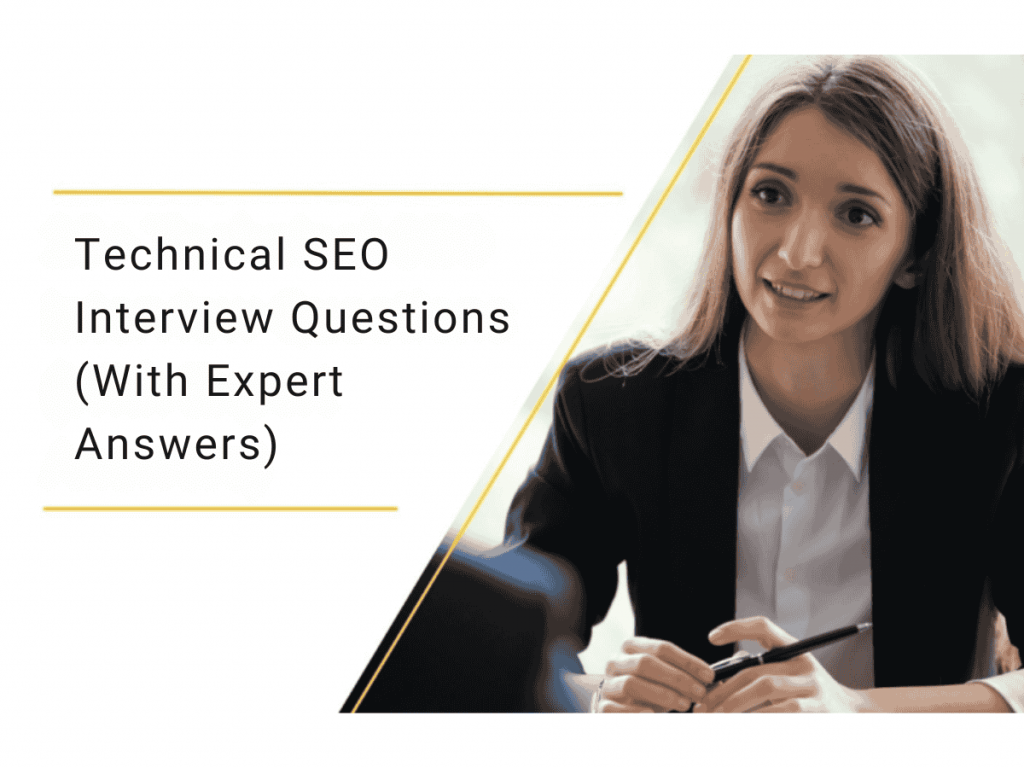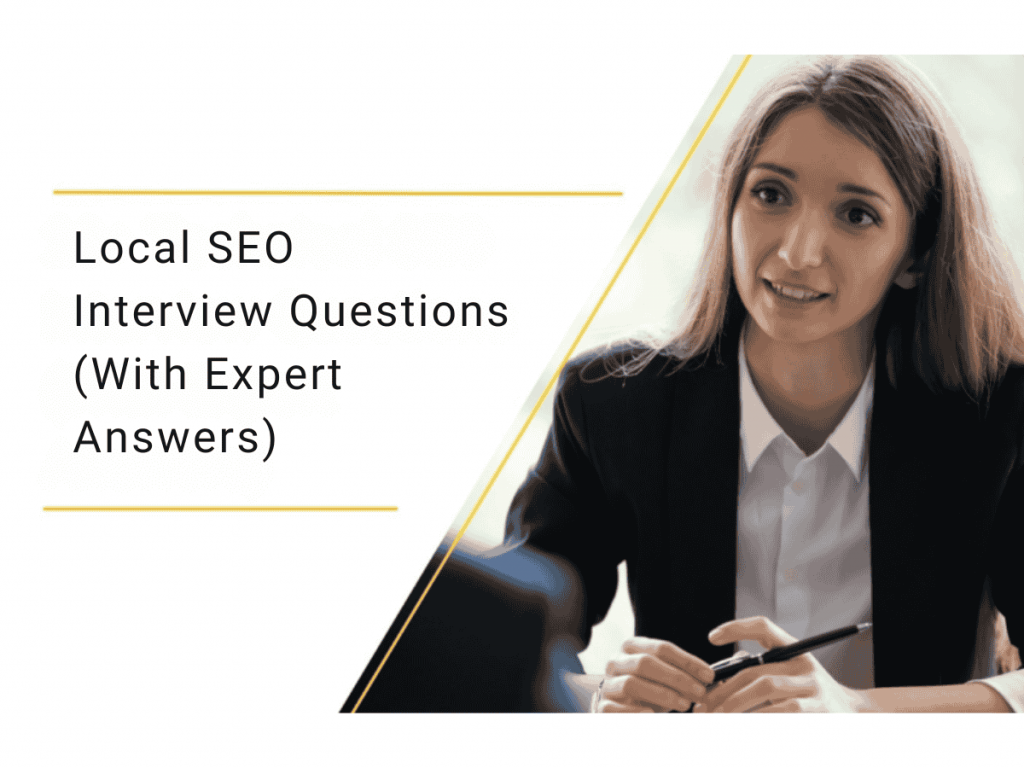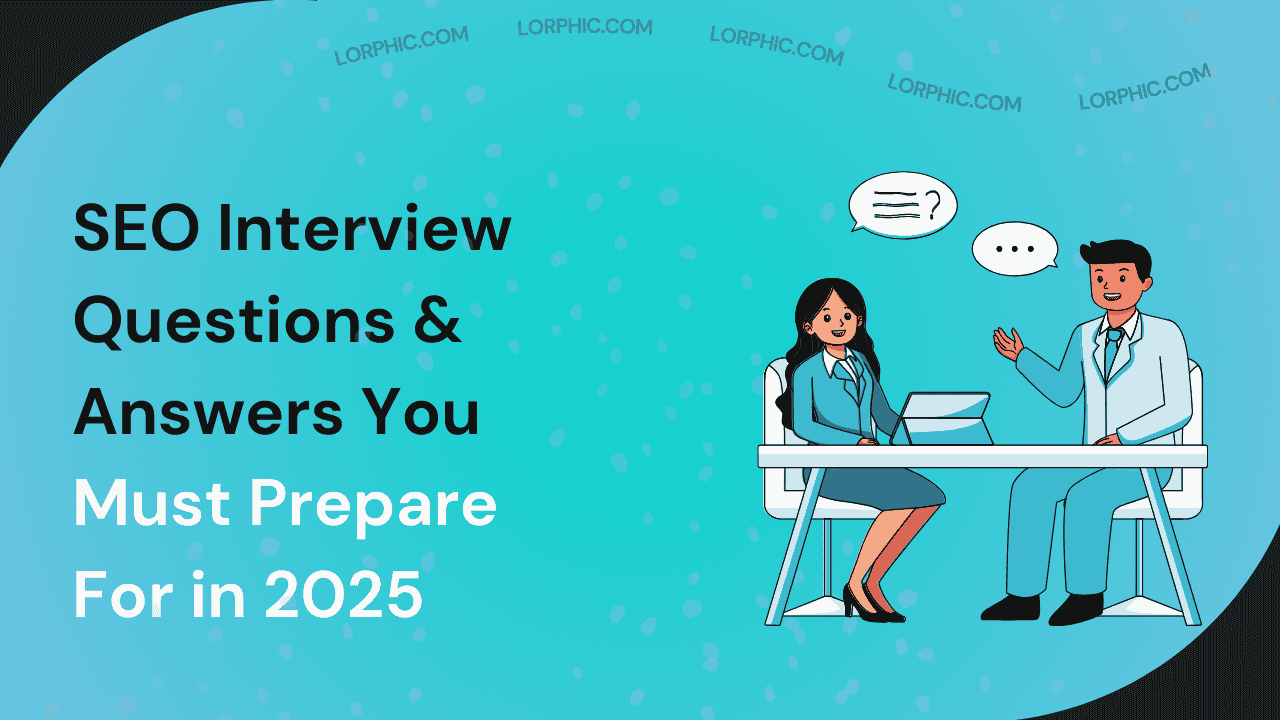Getting a job in search engine optimization is not just a matter of being aware of what is new, but rather you should be able to show solid knowledge of its foundations and how to use them. The more the digital world changes, the more the questions you’ll face in an interview change. Knowing the most frequently asked SEO interview questions will enable you to explain your capabilities and demonstrate that you’re the ideal person for the position.
The guide consists of an exhaustive SEO marketing interview questions and answer list related to all aspects of SEO. You can find questions for all levels of experience, from foundation to expert techniques, to enable you to enter your next interview with confidence.
What is the Job of Search Engine Optimization?
An SEO specialist is responsible for making a website more visible in search engines like Google and Bing. The main goal is to attract more visitors by helping the site appear higher in search results. To do this, an SEO professional works on several areas, technical optimization, content improvement, and link-building strategies, all of which play a role in driving organic traffic.
A good SEO specialist understands how search engines crawl and index pages, but also keeps the user in mind. It’s not just about ranking, it’s about creating a website that is easy to find, provides useful information, and offers a smooth experience for visitors. In simple terms, SEO specialists help connect people with the information or services they are looking for, while also supporting the business in reaching its goals.
Basic SEO Interview Questions & Answers for 2025
Every basic SEO interview will start with foundational questions to gauge your general knowledge. These questions ensure you have a firm grasp of the essential concepts that all other strategies are built upon.
Name a few important Google ranking factors.
Some important Google ranking factors include page speed, high-quality content, keyword optimization, backlinks, and mobile-friendliness. Search engines also consider Core Web Vitals, site security (HTTPS), internal linking, freshness of content, domain authority, and user experience. Together, these elements determine how well a website performs in search rankings.
Difference between organic and paid results?
Organic results are unpaid listings that appear because of effective SEO practices, like content relevance and backlinks.
Paid results, on the other hand, are advertisements placed through platforms like Google Ads. While organic rankings build long-term trust, paid ads provide immediate visibility for targeted keywords.
What are keyword frequency, Keyword Density, Keyword Difficulty, and Keyword Proximity?
Keyword Frequency: how often a keyword appears.
Keyword Density: keyword percentage in content.
Keyword Difficulty: competition level for ranking.
Keyword Proximity: closeness of keywords in text.
Together, they guide keyword strategy, but balance is crucial to avoid over-optimization.
How is Bounce Rate Defined in SEO?
Bounce rate is the percentage of visitors who leave a site after viewing only one page. A high bounce rate may signal poor content relevance, weak user experience, or mismatched intent. It’s a key metric for understanding engagement and content effectiveness.
Technical Search Engine Optimization Interview Questions With Answers
Technical SEO is the foundation of any successful strategy. These technical SEO interview questions test your ability to ensure a site is accessible, fast, and easy for search engines to understand.

What is the impact of page speed on SEO?
Page speed directly affects user experience and Core Web Vitals. A fast-loading site reduces bounce rates, improves engagement, and signals quality to Google. Slow sites are penalized in rankings, especially on mobile. Optimizing speed is critical for both search performance and user satisfaction.
What is a robots.txt file, and how is it used in SEO?
A robots.txt file tells search engine crawlers which parts of a site to crawl or avoid. It helps manage crawl budget and protect sensitive areas from indexing. Used properly, it guides bots while ensuring important pages remain accessible and optimized for ranking.
What is a canonical tag and when would you use one?
A canonical tag tells search engines which version of a page is the preferred one when duplicate or similar content exists. It prevents duplicate content issues and consolidates ranking signals, ensuring SEO efforts focus on the correct page instead of splitting authority.
How do you identify and fix crawl errors?
Crawl errors can be identified using Google Search Console or SEO tools like Screaming Frog. Fixes may include correcting broken links, updating sitemaps, resolving redirect loops, or unblocking resources in robots.txt. Regular monitoring ensures search engines can crawl and index content effectively.
What are 301 and 302 redirects, and when should you use them?
A 301 redirect is permanent and passes most link equity to the new page, ideal for content that’s moved permanently.
A 302 redirect is temporary, used when content will return to its original URL. Choosing correctly ensures rankings and user experience remain intact.
Off-Page SEO Interview Questions & Answers
Off-page SEO focuses on building a website’s authority and reputation. These off-page SEO interview questions explore your knowledge of link-building and other external signals.
Can you explain the concept of domain authority and how it affects SEO?
Domain Authority (DA) is a metric developed by Moz that predicts how well a website can rank in search engines. A higher DA often means stronger ranking potential, as it reflects the site’s backlink profile, trustworthiness, and overall authority. While not a Google ranking factor, it’s useful for comparing sites.
How do you determine the quality of a backlink?
A quality backlink comes from a relevant, authoritative, and trustworthy website. I usually evaluate factors like domain authority, content relevance, anchor text, and traffic of the linking site. High-quality backlinks boost credibility and rankings, while spammy or irrelevant ones can harm SEO performance.
Can you explain what link juice is and how it affects SEO?
Link juice refers to the authority or value passed from one webpage to another through hyperlinks. When a high-authority site links to your page, it transfers part of its ranking power, improving your visibility. Internal links also distribute link juice across a website to strengthen overall SEO.
On-Page Search Engine Optimization Interview Questions/Answers
These on-page SEO interview questions focus on the optimization of elements within a website. This is your chance to show you know how to create content that both users and search engines will love.
What are the most important on-page SEO elements to optimize?
The most important on-page SEO elements include title tags, meta descriptions, H1–H6 headings, URL structure, internal linking, and image alt text. Optimizing content quality, keyword placement, and Core Web Vitals is also crucial. These elements help search engines understand content while improving user experience.
What is search intent and why is it important?
Search intent is the goal behind a user’s query, whether they want information, to compare options, or to make a purchase. Matching content to intent improves relevance, reduces bounce rates, and increases conversions. It’s essential because Google prioritizes pages that best satisfy user intent.
What is E-E-A-T and how do you demonstrate it?
E-E-A-T stands for Experience, Expertise, Authoritativeness, and Trustworthiness, a concept from Google’s quality guidelines. It’s demonstrated by publishing accurate, well-researched content, citing credible sources, showcasing author credentials, and maintaining site security. Strong E-E-A-T signals help build user trust and improve search visibility.
Local SEO Interview Questions With Answers
For businesses with a physical location, local SEO is essential. These local SEO interview questions assess your ability to help a business rank in its geographic area.

What is local SEO, and how do you optimize for it?
Local SEO helps businesses appear in search results for location-based queries. Optimization includes setting up and verifying a Google Business Profile, building local citations, getting customer reviews, ensuring NAP consistency, and creating locally relevant content to increase visibility in “near me” searches.
How do you optimize a Google Business Profile?
I would fully complete the profile with accurate business details, categories, services, and photos. Adding posts, FAQs, and updates regularly also helps. Encouraging customer reviews and responding promptly improves engagement. Consistent updates and relevant keywords in descriptions boost ranking in the local pack.
How would you handle negative reviews on a Google Business Profile?
Negative reviews should be handled professionally and politely. I’d acknowledge the issue, apologize if needed, and offer to resolve it offline. A thoughtful response shows accountability, builds trust with future customers, and demonstrates that the business values feedback. Ignoring reviews can harm credibility.
What is NAP consistency, and why is it important for local SEO?
NAP stands for Name, Address, and Phone number. Consistency across directories, websites, and citations is crucial because Google uses this data to verify business legitimacy. Inconsistent details confuse search engines and customers, which can hurt local rankings and trust. Accurate NAP improves visibility.
Conclusion
Preparing for digital marketing SEO interview questions goes beyond memorizing definitions, it’s about showing how you can apply your knowledge in real-world scenarios. Backing up your answers with concrete examples, case studies, or results you’ve achieved in previous roles helps validate your skills. At the same time, highlighting your problem-solving approach, adaptability to algorithm changes, and enthusiasm for continuous learning can give you a clear edge. By blending technical know-how with practical experience, you position yourself as a strong candidate ready to excel in any SEO role.




